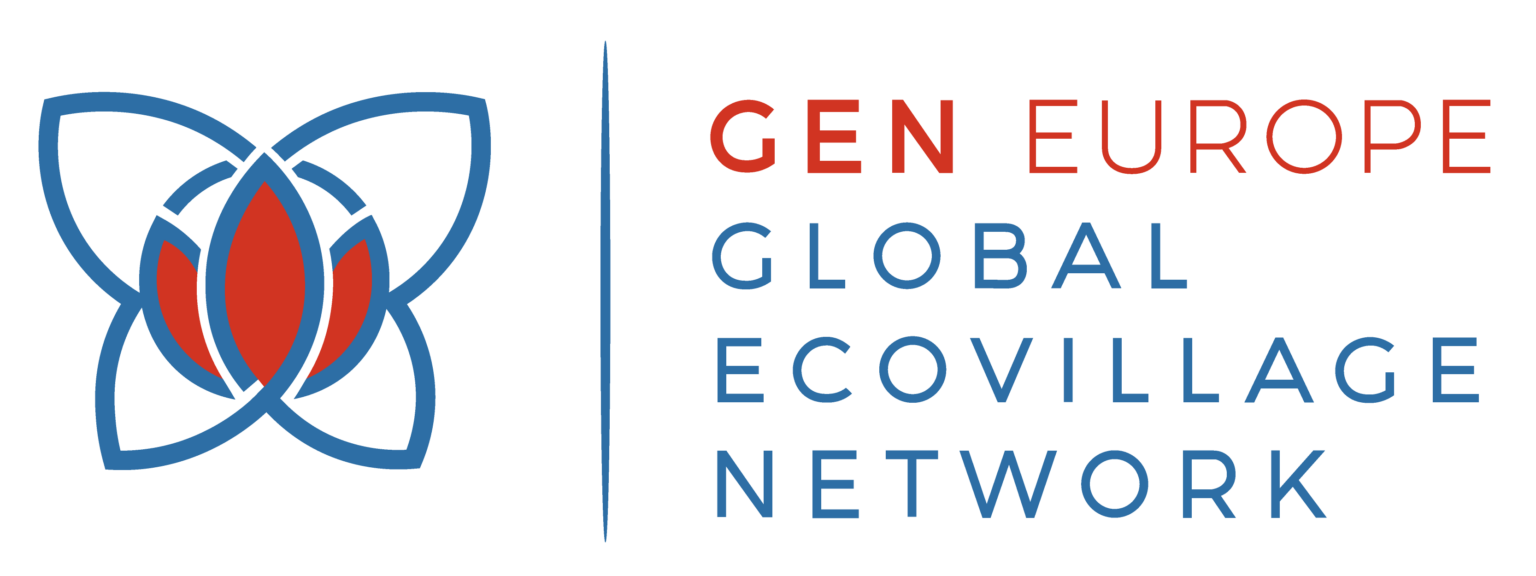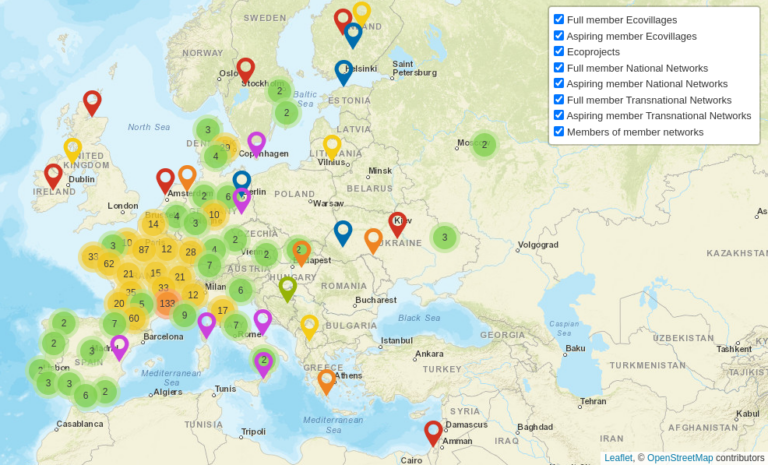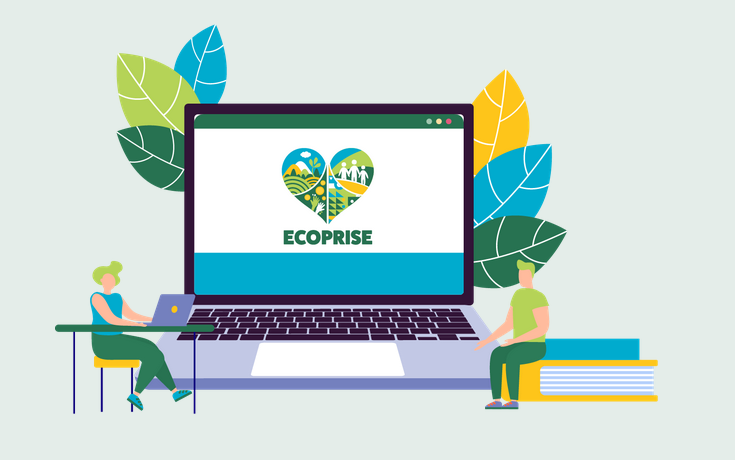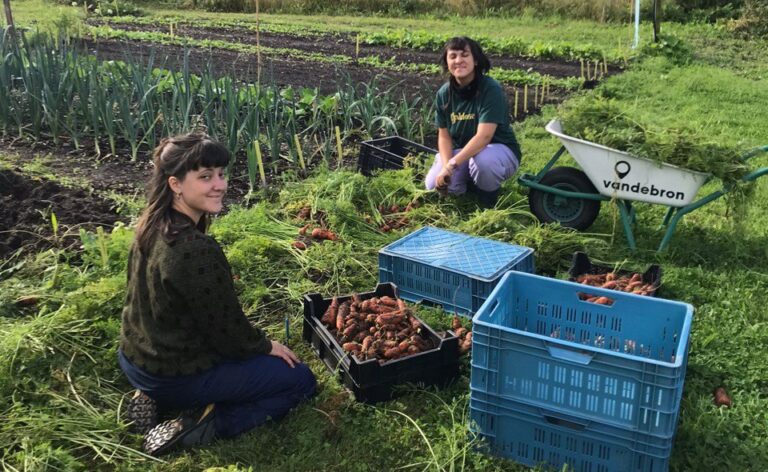REDES – Ecovillage Emergence in the Sahel
GEN Ambassador Alfonso Flaquer reports from a trip to the ecovillages of Senegal
GEN Ambassador and Elder Alfonso Flaquer has long been connected with the ecovillage movement throughout Africa. With the Iberian Ecovillage Network, RIE, he participated in a recent visit to various projects and shares his impressions here.
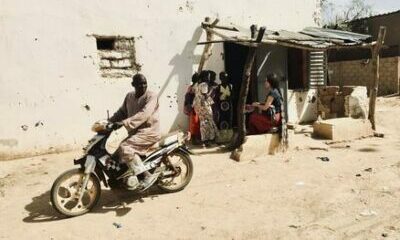
I have just returned from Senegal where I have been visiting some of the projects that make up the Network for the Emergence and Development of Ecovillages in the Sahel (REDES). This network of local initiatives includes ecovillages in Mauritania and Senegal, spread around the Senegal River that separates both countries. The REDES network was twinned with the Iberian Ecovillage Network (RIE) recently, and there have already been several people who have travelled to this enclave during this year. Some, on a personal basis, undertaking the construction of several wells in the surroundings of Guedé Chantier, a district where the human agglomeration is remarkable. Others, arriving from Los Portals (www.losportales.org), a RIE member ecovillage,, to share knowledge about cheese and yogurt making and help create local micro-economies. It is also remembered, with equal success, the workshops on the preparation of canned vegetables that brought some people from Damanhur (www.damanhur.org), an Italian ecovillage also twinned with REDES.
My work there has been to observe the different community needs to understand how we could collaborate, since we have received an invitation from one of the villages to twin with my ecovillage, Arterra Bizimodu . The success of this type of ecovillage initiative is linked to the fight against rural depopulation in some way, which is an issue in which the RIE is currently investigating with the Government of Navarra and putting proposals on the table with studies in hand. Nobody leaves their town if there are opportunities for a fulfilled life. We already know that the ecovillage format is successful in that regard, since the activation of small businesses and micro economies is part of what will allow families to place themselves in the security and stability necessary to avoid having to emigrate.
From dependence to permaculture
Creating a local micro-economy is here is one of the important issues, and it has to be a very creative work, because money does not run, nor does it flow especially, because there is no way to generate it. A series of catastrophic circumstances have put an end to peasants, imprisoned by banks and loans. Nor would there be any way to spend it in these remote and rural environments. The access of the majority of the population to consumption is reduced to the mini-market in each corner, where tight necessities are grouped together with huge amounts of ultra-processed biscuits, juices and snacks. The incidence of diabetes in families is alarming and it is not surprising at the amount of white sugars and powdered milk taken daily. Nestlé’s omnipresence in Senegalese food is worth studying, I think. That of rice is also curious, since nobody would say that its implementation – it is even the popular national dish – dates back only 70 years ago, when it was introduced by China in one of the campaigns to promote communism in this area. The lands near the river arrived and worked with huge machines, leaving an infrastructure on which many of the Guedé Chantier farmlands depend, for example. But also a very expensive model to maintain and that ends up developing an increasing dependence on products of the petrochemical industry to survive, so that the fields are impoverished: their productions have already been reduced by two thirds in these decades. Double or triple chemical fertilizers are needed to collect less than half than in the past.
In several villages, women have organized to set up communal and biological gardens. Biofertilizers and composting, in addition to the introduction of permaculture, have unleashed valuable benefits: on the one hand, vegetables and vegetables are tastier and healthier, so they provide a necessary complement to the daily feeding of families and are also better valued in local markets; but also, not having to spend a lot of money in petrochemical fertilizers, the crops are cheaper.
“The Elephants Will Return”
The town of Diarra, where a group of women manages a permacultural garden, is well known and the people of the area come to watch and learn. The principles were hard, they tell me. Traditionally, it is men who go out to the fields and women stay in the homes. But the determination of women to contribute their own income to the family economy managed to find the necessary way to allow such a change in the local culture. The reforestation project was also undertaken by these women almost 20 years ago and now their fruits are seen and replicated elsewhere. The recovery of a forest that had been lost is good news anywhere, although here it is for many more reasons. That forest creates its own microclimate and the proliferation of insects that will attract lizards and snakes that will attract cranes and birds and small mammals. “And, if we manage to bring the jungle back, the elephants will return” – adventures one of the most optimistic locals …
The elephants left 60 years ago when the lush forests were cut down to produce coal and to have rice fields. Now those who leave are young people, to the city or abroad, frightened by the lack of opportunities and any hint of progress. A barren land where before there was abundance. People are well aware of the damage caused by the loss of biodiversity and monoculture and the emergence of modern diseases (cancers and diabetes). The canals that carry water to the fields are used by families to wash and wash clothes with powdered detergents. All these chemicals will end up mixing with the fertilizers themselves in a festival of toxic products that we already know where it ends. For all these reasons, initiatives that provide alternatives to this model of expensive and insane agro-production are highly valued.
Across the Senegal River
Across the Senegal River, on the Mauritanian shore, we find Salaayel Lobodou, one of the flagship initiatives of REDES. The first thing that hits upon reaching this population of almost 1000 inhabitants is neatness. The exquisite zeal in cleaning makes one wonder why the same does not happen in the rest of nearby villages, where garbage and plastics and toxic spills follow each other in continuity. The answer surely lies in the internal organization of its inhabitants, and – in some way – the contagious leadership of its general “coordinator”, M. Aly Ly. This unusual visionary years ago dreamed of transforming that remote village into a meeting place for different cultures, thus enriching the cultural life of the people with the contribution brought by people of other nationalities. In the visitor’s notebook of his reception space, I discover with surprise the amount of people who have passed through this distant and exotic place. Good job.
M. Aly gives me a walk through the reforestation project, which includes a lush forest planted almost 20 years ago by the community. In this barren and desert land, the Salaayel forest emerges as a mirage, and is a source of pride and local recognition. They are 18 hectares (of families of acacias above all) that already exceed 10 meters and that contribute many resources and the gradual return of the lost fauna. When we walked through the shadows we discovered the presence of many animals and colorful birds that would delight any ornithologist… By the way, those who have come here in search of birds accounted for more than one hundred species in one afternoon, ensuring that, proportionally, You could arrive to see more than 1000 species in the area.
The forest borders a river, and it is on those banks where you can fish better – my host points out. Next to the forest, I discover another of the initiatives of the village to prevent the erosion of the terraces and the loss of land on the banks of the river. On the shore managed by these ecovillagers, the vegetation reaches the water itself, in contrast to the deserted shore next door. The village has also arranged traditional cabins and a kitchen and even a library to attract traveling people and ecotourists.
The community is aware that many things have been achieved thanks to the organizational format. The management of the people is divided into circles (committees), mixed and sovereign, which are the ones who make decisions regarding their areas of operations. Each circle has its representative and its leadership. The organizational system was developed imitating a similar one that had been introduced into the school with remarkable results. The professor in charge ended up being elected Chief of the Village and it was decided to introduce the work with circles also at the municipal level. There are circles for cleaning, education, livestock, culture, agroecology, environment, waste, women, young people, etc … until a newly created Beekeeping Committee, as the bees have returned and have begun to swarm in the forest! The leadership in traditional subjects always falls to the oldest of the people, but this new shared leadership is the one that deals with ecovillage development and is the one that is promoting the change towards the self-management of its resources, self-sufficiency and sustainability.
The Lahel Hub
Back to Guedé Chantier, in Senegal, we stopped to know the Lahel Ecovillage Hub project, which we have heard so much about these days. Here too, some hectares have been fenced, permaculture applied in the land regeneration project and a training program started for REDES member villages – and others that are about to learn. From here the Ecovillage culture and its best practices radiate, as this project is located in the geographic center of its partnership area, to facilitate and minimize displacements. The tireless work of Dr Ousmane Pame, first as Mayor of Guedé Chantier, later as General Coordinator of GEN Africa and now also as NETWORK Coordinator, joins that of many others in the area that would highlight Marian Zeitlin and his exchange program with young people from North American Universities that has been in the area for many years.
In short, the rapid progress and contagion of ecovillage guidelines in some villages in the REDES area of influence foresees the success of the Lahel Ecovillage Hub, a true permacultural laboratory that proposes to investigate how the ecovillage development program can benefit populations that inhabit the African Sahel. The Sahel, an ecosystem that acts as a bridge between the sand and the jungle, is also what is already becoming part of the South of the Iberian Peninsula, condemned to become desert in the next millennia. It is, therefore, an opportunity for the people of southern Europe to learn how we will survive in extreme climates in some centuries … And to collaborate within the framework of social justice that develops the ecovillage development program of GEN, with helping local villages to manage their own resources by sharing the appropriate technologies developed by other communities on the planet in similar circumstances.
To access the REDES development zone you have to reach Dakar and from there take a transport to N’doum, about 6 hours away. Senegal is known for its “teranga”, exquisite hospitality to visitors, and for being the oldest democracy in Africa; The good humor and French-speaking education of its inhabitants will never cease to surprise us.
